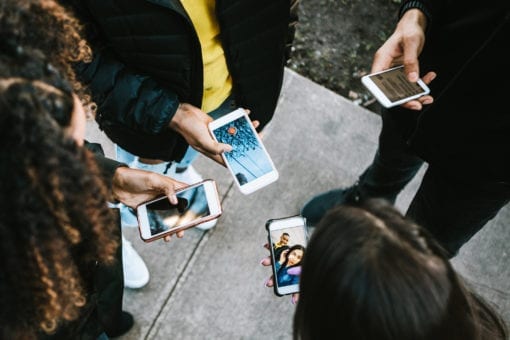Eating Disorder Advocacy
Eating disorders affect 20 million women and 10 million men in the United States and although they affect millions of individuals and can be life-threatening, unfortunately eating disorders are overlooked, extremely stigmatized and underfunded. Although the incidence of new eating disorders has been on the rise since 1950, insurance coverage for eating disorder treatment is lacking, research on eating disorders remains sparse, and there has been little to no change in societal pressure around the idolized thin body type. To give a good sense of how underfunded eating disorder research is, here is a look at the numbers: in 2011, research dollars spent on Alzheimer’s disease averaged around $88 per impacted individual; for Schizophrenia, that number was $81 per affected individual, and for eating disorders the average amount spent per affected individual was $0.93. Whether you are struggling with an eating disorder yourself or have a close friend or family member who has been affected by one, there are many ways to get involved with eating disorder advocacy. Advocacy comes in all shapes and forms, and some of the most effective advocates are those who are self-advocates or advocating for a loved one.
Volunteer for a non-profit organization
Many non-profit eating disorder organizations are always looking for volunteers to help with outreach. Some tasks may include making phone calls, assisting at an event, helping with fundraising or sharing information on social media. While this may not sound like much, all advocacy work, no matter how big or small, is impactful. Annual conferences are also a great way to network and get involved, not only with non-profit organizations but also with peers. Many non-profit eating disorder organizations hold yearly conferences that host healthcare providers, individuals with eating disorders and their families, educators, and advocates, and include panel sessions, workshops, and discussions. These conferences are great opportunities to network and plan for future advocacy events with like-minded individuals. The following are reputable eating disorder awareness organizations to check out:
- National Eating Disorders Association
- Academy for Eating Disorders
- Eating Disorder Coalition
- Project Heal
- Eating Disorder Hope
- National Association of Anorexia Nervosa and Associated Disorders
- Binge Eating Disorder Association (BEDA) National Conference
Political lobbying on Capitol Hill
You can also head to Capitol Hill for lobby days, in particular, Eating Disorders Coalition’s annual advocacy day. At this event, you can join eating disorder activists in Washington, D.C. as they educate lawmakers about the grave realities that are strongly associated with eating disorders, and the importance of adequate funding, insurance coverage, and available treatment for all individuals impacted by eating disorders. Lobbying can also involve understanding the political process, building relationships with legislators, teaming up with other organizations who share the same goals, and knowing when to show up to political events and rallies. Many politicians are not experts on eating disorders, so this type of advocacy is also a process of informing these political leaders about the critical issues associated with eating disorders and what eating disorder treatment entails.
Become a mentor
Help mentor others who are struggling with an eating disorder from the comfort of your own home. You can join the conversations on social media to encourage others who are struggling with an eating disorder, lead online eating disorder support groups, volunteer as a Grocery Buddy with NEDA, and share your advice in online forums. You can also join community events such as awareness walks and school advocacy programs.
Remember to celebrate the small everyday victories
Advocacy can be strenuous as often it takes months to years to see progress, and sometimes, progress is never made. Make sure to celebrate every advocacy victory, no matter how small because the journey is a marathon, not a sprint. We plant seeds, and sometimes it takes years to accomplish what we set out to do. Advocacy is not just a box to be checked off but instead is a way of life and should come from our hearts as a way to encourage others and change the world for the better.
We’re Here for You
If you are struggling or someone you know is struggling, we are here for you. Center for Discovery’s Treatment Centers specialize in treatment for eating disorders, mental health and dual diagnosis treatment with unique treatment programs for every individual to get them on their way to eating disorder recovery.
For more information, resources, or to consult with one of our specialists, call 855.514.0920.
National Eating Disorder Week with Center For Discovery [Video]
